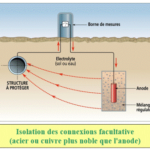Are you considering working for the government? Perhaps you’re curious if the employment benefits and protections are better than those in the private sector. This is a common question, and in this article, we will explore the level of protection provided to government employees, whether it is more than that of private sector employees.
Advantages of Being a Government Employee
While there is no guarantee of job security in any career, government employees do have more protections than those in the private sector. For example, government workers are covered under the Civil Service Reform Act, which provides protections against unfair treatment and ensures due process before any disciplinary action or termination.
Moreover, many government employees have collective bargaining rights, meaning they can negotiate their salaries, benefits, and working conditions with their employer through their union
The Civil Service Reform Act
The Civil Service Reform Act of 1978 is a federal law that governs the rights and protections of federal employees. The law established the Merit Systems Protection Board (MSPB), which is responsible for ensuring that government employees are protected against unfair treatment and wrongful termination. The MSPB also oversees the federal government’s merit-based hiring system and employee performance management.
Due to the CSRA, government employees cannot be fired without a just cause, and they are entitled to certain procedural protections before disciplinary action can be taken. This includes the right to written notice of the proposed disciplinary action, the right to respond to any charges made against them, and the right to a hearing before a neutral decision-maker. In addition, government employees have the right to appeal any disciplinary action taken against them to an independent body.
Protection against unfair treatment
Under the Civil Service Reform Act, government employees are protected against a range of unfair treatment, including discrimination, retaliation, and harassment. If an employee experiences any of these issues, they can file a complaint with the Equal Employment Opportunity Commission (EEOC), which investigates the matter and can take legal action if necessary.
Whistleblower Protection Act
Finally, government employees also have protection under the Whistleblower Protection Act, which provides protections to employees who report a violation of law, rule, or regulation, or who refuse to participate in an activity that would result in a violation of law, rule, or regulation.
Cases of Unfair Dismissals
Despite the various employment protections provided to both government and private sector employees, unfair dismissal can still happen. In the event of unfair dismissal, an unfair dismissal employment lawyer can assist in protecting your rights and providing legal guidance.
An unfair dismissal employment lawyer can assist in determining whether the dismissal was in violation of federal or state laws and can help you negotiate a settlement or file a lawsuit, if necessary. They can also assist in filing a complaint with the Equal Employment Opportunity Commission (EEOC) or other relevant agency.
Both government and private sector employees have a variety of employment protections available to them. Government employees enjoy certain protections under the CSRA and Whistleblower Protection Act, while private sector employees are protected by anti-discrimination laws, the NLRA, and the FLSA. However, if you experience unfair dismissal, it is important to seek legal guidance from an unfair dismissal employment lawyer to protect your rights and ensure you receive the compensation you deserve.





